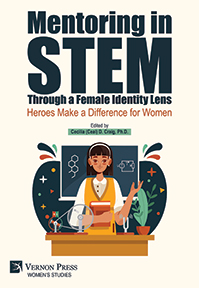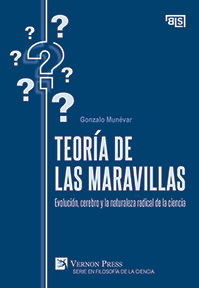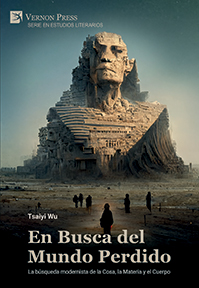Search
Browse
by Publication status
by Subject
Anthropology (26) Art (124) Business and Finance (26) Cognitive Science and Psychology (54) Communication and Journalism (45) Economics (62) Education (66) History (149) Human Geography (22) Interdisciplinary (42) Language and Linguistics (129) Law (16) Music Studies (18) Philosophy (157) Political Science and International Relations (103) Sociology (304) Statistics and Quantitative Methods (20)by Series
Series in Literary Studies (65) Series in Philosophy (59) Series in Education (51) Series in Sociology (42) Series in Politics (32) Series in World History (32) Bridging Languages and Scholarship (31) Series in Language and Linguistics (25) Cognitive Science and Psychology (20) Series in American History (20) Series in Philosophy of Religion (20) Series in Art (19) Critical Perspectives on Social Science (16) Series in Cinema and Culture (16) Curating and Interpreting Culture (15) Series in Critical Media Studies (14) Series on the History of Art (14) Series in Anthropology (13) Series in Business and Finance (13) Economics (13) Series in Music (12) Series in Communication (9) Series in Performing Arts (9) Philosophy of Personalism (8) Series in Law (8) Series in Economic Methodology (7) Series on Climate Change and Society (7) Women's Studies (7) Classics in Economics (6) Series in Economic Development (6) Philosophy of Forgiveness (5) Series in Built Environment (5) Series in Economic History (5) Series in Philosophy of Science (4) Series in Social Equality and Justice (4) Series on the History of Science (4) Serie En Estudios Literarios (3) Serie en Sociología (3) Series in Contemporary History (3) Series in Creative Writing Studies (3) Series in Design (3) The Interdisciplinary Built Environment (3) Serie en Comunicación y Medios (2) Serie en Historia (2) Series in Heritage Studies (2) Series in Innovation Studies (2) Series in Philosophy of Race (2) Serie en Ciencias Políticas (1) Serie en Entorno Construido (1) Serie en Estudios Culturales (1) Serie en Filosofía (1) Serie en Filosofía de la Ciencia (1) Serie en Música (1) Series in Classical Studies (1) Series in Economics of Technological Change (1) Series in Urban Studies (1)by Language
English Spanishby Author
Browsing with filters

Mentoring in STEM Through a Female Identity Lens: Heroes Make a Difference for Women
Edited by
Cecilia (Ceal) D. Craig, Druai Education Research, CA
Availability: In stock
288pp. ¦ $105 £84 €98
With the stagnant low percentages of women in STEM careers, identifying practices to satisfy the growing need for professionals in those fields is critical to improve recruitment and retention. Supportive relationships, like mentors and sponsors, have been shown to both inspire women to pursue those careers and to help them succeed in them. This book explores how developing supportive connections helps students, faculty, and teachers see STEM professions as being a place for women to grow and succeed. Early chapters provide essential mentor characteristics and explore engineering education gender inequity from a teacher's perspective of stereotypes, stereotype threat, and bias, offering culturally relevant teacher mentoring approaches to promote equitable pre-college engineering education. Middle chapters describe K-12 mentoring programs: mentorship initiatives empowering young South African Women and girls to advance to mathematical-related careers; programs, methods and activities to achieve the desired goal of making young students aspire to become scientists; and engagement year-round in grades 9-12 combined with 40 years of iterative evaluation created a finely-honed enrichment program for low-income Black women in urban public high schools. A longitudinal undergraduate mentoring program for mentoring early college students in Louisiana provides further insights in that section. The final four-chapter section describes mentoring programs for professors and teachers: reciprocal mentor relationships and role shifting within an informal peer mentoring group; differences between mentoring relationships and sponsoring relationships within academia; the impact of culturally responsive mentorship (CRM) on the development and expression of a pre-service teacher’s woman of science identity; and a program that aims to recruit and retain STEM pre-service teachers and STEM teachers of color. With several longitudinal mentoring programs, several programs for women of color, this book fills a gap to help grow the numbers of women in STEM.
Teoría de las maravillas: Evolución, cerebro y la naturaleza radical de la ciencia
Gonzalo Munévar, Lawrence Technological University
Availability: In stock
210pp. [Color] ¦ $73 £53 €60
'Teoría de las Maravillas: Evolución, cerebro y la naturaleza radical de la ciencia' aspira a determinar la mejor manera en la que la ciencia puede satisfacer nuestros sentidos de maravillarnos a través de la exploración del mundo. El empirismo establece que la ciencia tiene éxito porque sigue el método científico: La observación basa su juicio en la Teoría, apoyándola o rechazándola. Se ha dado mucho crédito al inventor de este método, Galileo, pero cuando los filósofos historicistas de la ciencia, como Kuhn y Feyerabend, llaman nuestra atención sobre lo que Galileo investigó y escribió realmente, nos quedamos en shock al descubrir que lo que hizo fue clavar una daga en el corazón del Empirismo. Derogó la distinción entre teoría y observación. Hechos simples, como la caída en vertical de una piedra, descartaron el movimiento terrestre. Y con esto concluir que, si la piedra cae en vertical, sin embargo, tenemos que asumir que la tierra no se mueve. Si se moviera entonces la piedra solo daría la sensación de caer en vertical. Galileo, de esta manera, reemplazó los “hechos” sobre el movimiento de la tierra con “hechos” que incluían este movimiento. Este proceso es típico de las revoluciones científicas. Una buena estrategia para la ciencia es la elaboración de alternos radicales. De esta manera, y sobre su tesis, se reconsidera lo que cuenta como evidencia. A Feyerabend se le llamó irracional por esta sugerencia. Pero, si miramos la practica de la ciencia desde la perspectiva de la evolución y de la neurociencia, esta nos muestra que la sugerencia, de hecho, es bastante racional y que, además, ofrece una explicación sobre el por qué la ciencia funciona mejor como forma radical de conocimiento. También nos conduce a una forma biológica sensitiva de verdad relativa, con borradores preliminares que llevan a interesantes debates con otros investigadores de la filosofía de la ciencia. Este libro será de gran interés para estudiantes universitarios, profesores e investigadores en el ámbito de la historia o de la filosofía de la ciencia, así como a cualquiera con un interés general en la naturaleza de la ciencia.
En Busca del Mundo Perdido: La búsqueda modernista de la Cosa, la Materia y el Cuerpo
Tsaiyi Wu, Shanghai Normal University
Availability: In stock
176pp. ¦ $34 £27 €31
Este libro estudia, desde una perspectiva histórica, como los artistas modernistas, esa primera generación que empezó a reflexionar de manera intensa sobre el legado del Idealismo Alemán, buscó recrear el “yo” para recrear su relación con el mundo material. Teóricamente, el libro mantiene una conversación con los típicos intereses desantropocéntricos del siglo XXI y propone que el artista pueda escapar del antropocentrismo a través de la transformación del yo. La Parte Una, “Artificialidad” abre el debate con el culto del fin de siglo a la artificialidad, en el que los artistas como Theophile Gautier, Charles Baudelaire, J.K. Huysmans y Gustave Moreau se dedicaron a mostrar su amor por las esfinges pétreas, las estatuas de mármol o las apariencias inorgánicas. El culto a la artificialidad es una subversión perversa de la máxima de Hegel en la que la introspección es superior a la materia. En el culto a la artificialidad, el arte es superlativo a la naturaleza, incluso aunque el arte no se defina ya como imaginación inmaterial sino se reconfigure como una manifestación misteriosa que desafía al significado y subyuga al corazón sensible. La Parte Dos, “Ficción Autofilosófica” argumenta acerca del género en el que los artistas (Marcel, Proust, Walter Pater y Virginia Woolf) fijan las ideas filosóficas en el laboratorio de sus vidas y por lo tanto traducen a sus ideales estéticos —es decir, la manera en la que desean relacionarse con el mundo —en un viaje de auto examinación y autocultivo. En la novela de Pater, 'Mario el Epicúreo' el héroe explora como un percepto filosófico se puede traducir a sentimientos y acciones, demostrando que la literatura es un acercamiento único a la verdad ya que convierte la teoría en una experiencia transformadora. Mediante la exploración de los últimos descubrimientos de la psicología empirista, el artista busca escapar de la trampa Kantiana mediante el desarrollo de sus poderes de recepción y registrar pensamientos pasajeros y sensaciones. En resumen, el libro discute sobre como el desantropocentrismo no puede predicarse a través de una metafísica que presume que la subjetividad universal debe ser una forma de investigación estética que recrea al “yo” para recrear nuestras relaciones con el universo.
Philosophy’s Gambit: Play and Being Played
Edited by
Jeremy Sampson, University of Chichester, UK
Availability: Forthcoming
$81 £65 €76
Peace Studies and the Color Line
Africana Contributions
Carlos Cordero-Pedrosa, Universitat Jaume I, Spain; UNESCO Chair of Philosophy for Peace
and I Jin Jang, Universitat Jaume I; Spain; UNESCO Chair of Philosophy for Peace
Availability: Forthcoming
$81 £65 €76
Race is an important element of the modern understanding of the human being which emerged during colonialism in order to mark the distinction between the human and the subhuman. Histories and processes of racialization have not only been histories of direct and structural violence, but they were coterminous with the formation of modern human and social sciences, forms of governance, the emergence of international law, notions of citizenship, the formation of modern states, the elaboration of liberal political theories. Likewise, race is a significant aspect of migration, international and humanitarian aid, the notion of development, or current urban and environmental conflicts. The anthropological and racial dimensions of these issues have been omitted in peace studies. This work explores the silence on questions of race in peace studies, the under-theorization of racism and colonialism, and the scarce engagement with the different fields and traditions that put race, racism and colonialism at the center of their inquiry. The book starts with the question of how peace studies can address issues of race and racism when the discipline has not only ignored them as an object of study but also when the field has not properly addressed the intricacy of race, racism colonialism with knowledge production. To that effect, it follows two interwoven paths: First, it addresses the reasons behind these absences and what the silence says about the field. Bringing the silences to the forefront would enable us to situate and rethink how peace research conceives itself, its own foundational narrative, its disciplinary boundaries, and its relationship with other fields of knowledge. Second and relatedly, the approach of the book is not only critical but also expansive and reconstructive. It engages in conversations with neglected fields such as black and Africana philosophy, anticolonial and decolonial thought, and feminist approaches to race and racism.





